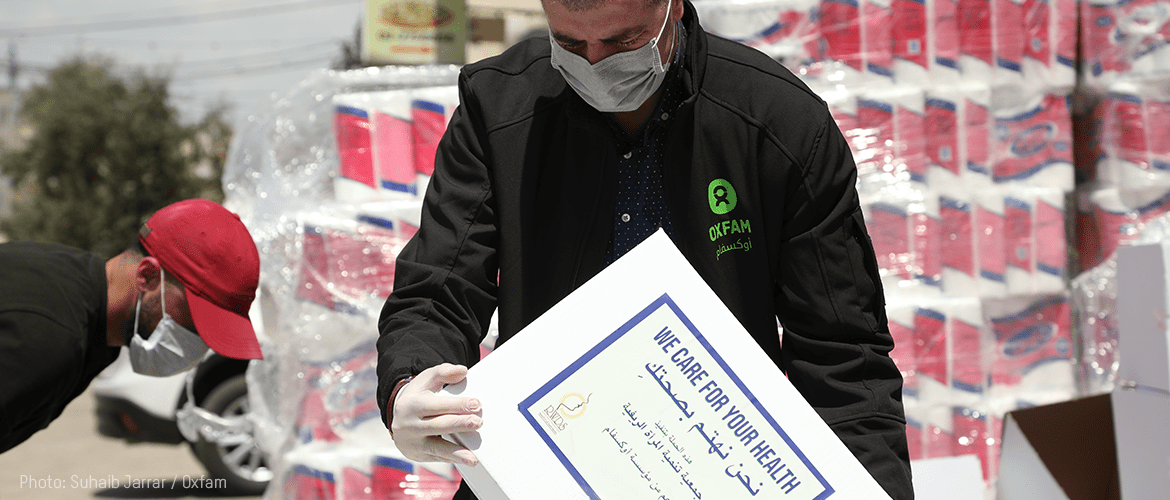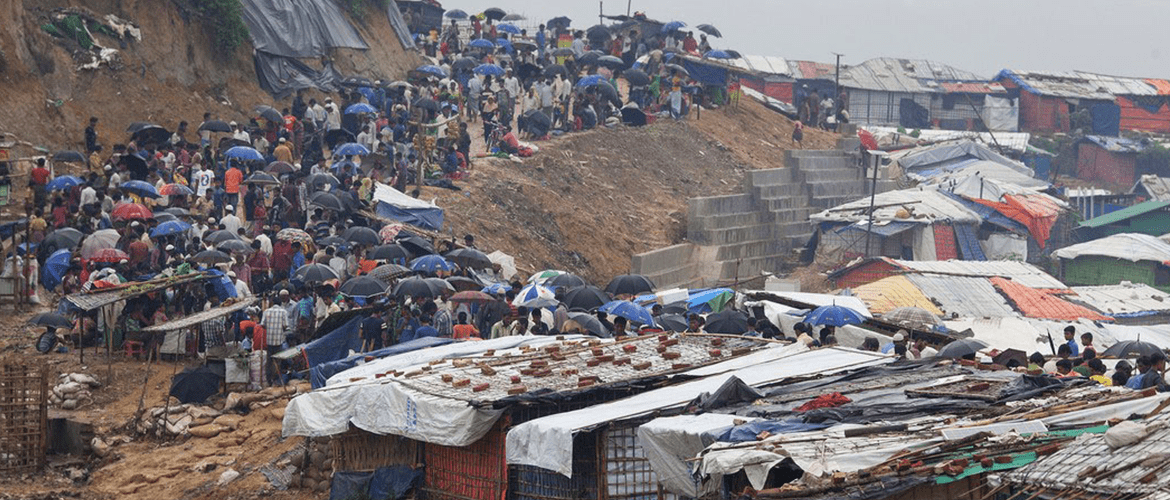
Cyclone Amphan has left a trail of devastation throughout north-east India and the Bangladesh coast, with over 80 deaths reported so far, destroying homes, embankments and crops, and compounding the suffering in many communities already hit by coronavirus and the impact of the lockdown.
The low-lying coastal communities in both countries are amongst the worst hit by the strongest ever cyclone recorded over the Bay of Bengal, which swept through the region late Thursday.
Oxfam and its partners are helping provide food, shelter and clean water to communities and assessing the further support needed in many others.
Dipankar Datta, Country Director, Oxfam in Bangladesh said:
“The situation in the low-lying coastal districts is very grave. Many homes have been destroyed and the cyclone has washed in salty water, contaminating the land and water sources. Our partners are distributing food to the most vulnerable and preparing to distribute safe drinking water and other essential items. The extra hygiene precautions necessary to contain coronavirus are slowing the response but we know they are vital.”
While Cox’s Bazar in Bangladesh was spared the worst of the cyclone’s impact, flooding in the densely populated camps where almost one million Rohingya refugees live in muddy shelters on hill sides, has sparked fears of mudslides. There are also concerns about the growing number of coronavirus cases in the camps.
Pankaj Anand, Director of Programs and Humanitarian response, Oxfam India said:
“It’s a triple crisis with the cyclone, coronavirus and economic devastation completely intertwined.
“The evacuation was successful in saving many lives – the challenge now is ensuring that people have the food and support they need to survive and get back on their feet as quickly as possible.
“Many people already had no savings left having lost their jobs or vital remittances due to lockdown. There are now no jobs in the cities and in the villages farms and crops have been destroyed due to the cyclone. People have nothing to fall back on.”
Oxfam and its partners have teams in the affected villages assessing where safe drinking water and food is most urgently needed. In some places the response has already started while in others distribution will start as soon as possible.
To prevent the spread of coronavirus during the cyclone response, Oxfam has helped distribute masks, provide handwashing facilities and disinfect cyclone shelters.
In the low-lying coastal areas in Bangladesh, Oxfam has also prepared desalination plants to provide safe drinking water as the water sources have now been contaminated by the storm surge. Salty water destroys crops and causes health problems.
Coronavirus continues to incite fear and threaten lives, and the risks of outbreaks of water-borne disease such as cholera also remain.
Aysha, a 55-year-old mother from a small coastal village in Barguna, Bangladesh spent the night in a cyclone shelter. She said:
“In the shelter, there were so many people and it was really hard to maintain social distance. I forgot about what might happen to me if my house was washed away by the tidal surge – I was more worried about the possibility of my family members getting infected by the virus.”
Notes to editors:
- Footage and photos available for Cox’s Bazar shot on 17-20 May including photos of rains in the camp, preparations including workers in PPE digging ditches and interviews with a female Rohingya refugee and Moury Rahman, Oxfam’s Senior Public Health Promotion in the camp as well as B roll of camp, people handwashing, social distancing, wearing masks.
- In Bangladesh, Oxfam is providing water and sanitation and increasing hygiene awareness to 173,000 people in the Rohingya refugee camps in Cox’s Bazar and 9,000 people in the surrounding community. It also helping almost 400,000 people in the coastal districts.
- Oxfam India is working across 14 states to help five million people with hygiene training and over one million people with food during the coronavirus lockdown migration.
- There are over 135,000 Covid-19 reported cases in India and Bangladesh







